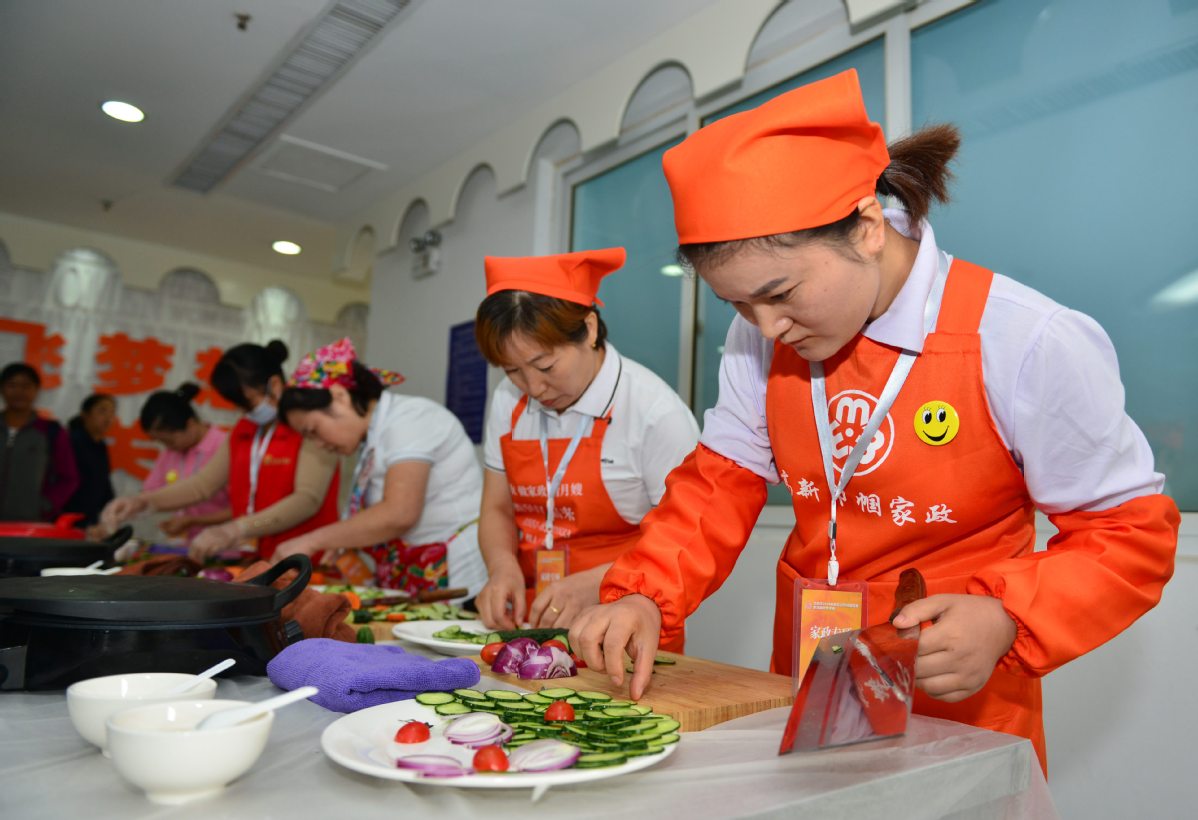Domestic workers look for better status and conditions
By Li Hongyang | China Daily | Updated: 2019-02-18 09:06

Yang Liping, who has been employed by several agencies simultaneously for the past two years, said the main purpose of the smaller outfits is to charge introduction fees. They don't care how their employees are treated, because the client is the most important person in the relationship.
"Agencies don't dare to offend clients-their gods-by speaking up for the employees, because the former are a fixed group in the city, while the latter are mostly migrant workers, and streams of them flow into the city at all times of the year," she said.
"Job seekers pay the agency 300 yuan a year to be introduced to clients. However, these women, most of them unqualified and from rural areas, are usually cast aside without work after one or two postings. The agencies are not interested in supplying qualified workers; they just want to provide a person to ensure they don't have to return the client's fee. When new job seekers arrive, agencies will give them a job straightaway to earn more commission."
Askci.com, a consultancy in Shenzhen, Guangdong province, has calculated that a 2017 report on the sector by the Ministry of Commerce showed that about 660,000 agencies offered domestic helper services in 2016.
Only 21.3 percent of the agencies were "large-scale operations"-defined as businesses with annual income of more than 20 million yuan-which earned a combined 214.4 billion yuan, accounting for about 60 percent of the sector's revenue that year.
Self-help strategy
However, more than half of all China's 25 million domestic helpers in 2016 were contracted to smaller outfits, which rarely provide support for their employees. That has seen some domestic workers take matters into their own hands by setting up unofficial networks, such as job seekers' groups on social media apps like WeChat.
When she worked as a maternity matron, Li Yufen, from Changchun, was a member of a 400-strong nationwide workers' group online.
She said such loose associations offer an easier, more reliable employment path because no agency fees are charged and potential employers are usually introduced by other members, so "bad" families can be avoided.
"It was not hard to find work through the group. I could have arranged bookings for six months in advance if I had wanted," she said.
Fu Yansheng, founder of Guanjiabang, an agency in Beijing that supplies domestic workers nationwide, is opposed to such groups, despite their apparent advantages.
He warned that the market could become more unstable and workers would enjoy even fewer rights if they took unregulated jobs via personal introductions or micro agencies. He added that channels such as these will not provide domestic helpers with assistance when they are confronted with unreasonable requests or even maltreatment.
























